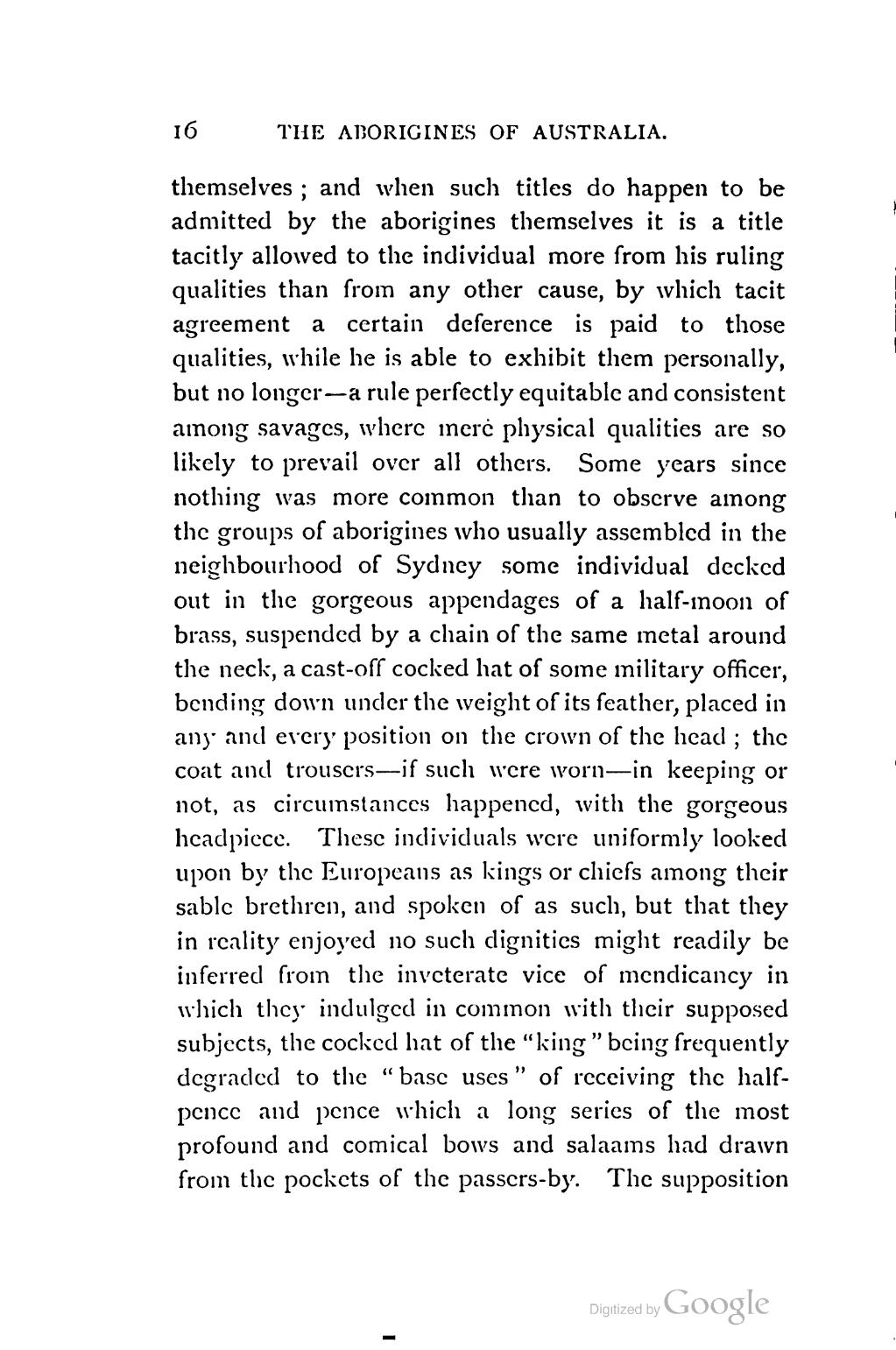themselves; and when such titles do happen to be admitted by the aborigines themselves it is a title tacitly allowed to the individual more from his ruling qualities than from any other cause, by which tacit agreement a certain deference is paid to those qualities, while he is able to exhibit them personally, but no longer—a rule perfectly equitable and consistent among savages, where mere physical qualities are so likely to prevail over all others. Some years since nothing was more common than to observe among the groups of aborigines who usually assembled in the neighbourhood of Sydney some individual decked out in the gorgeous appendages of a half-moon of brass, suspended by a chain of the same metal around the neck, a cast-off cocked hat of some military officer, bending down under the weight of its feather, placed in any and every position on the crown of the head; the coat and trousers—if such were worn—in keeping or not, as circumstances happened, with the gorgeous headpiece. These individuals were uniformly looked upon by the Europeans as kings or chiefs among their sable brethren, and spoken of as such, but that they in reality enjoyed no such dignities might readily be inferred from the inveterate vice of mendicancy in which they indulged in common with their supposed subjects, the cocked hat of the "king" being frequently degraded to the "base uses" of receiving the halfpence and pence which a long series of the most profound and comical bows and salaams had drawn from the pockets of the passers-by. The supposition
